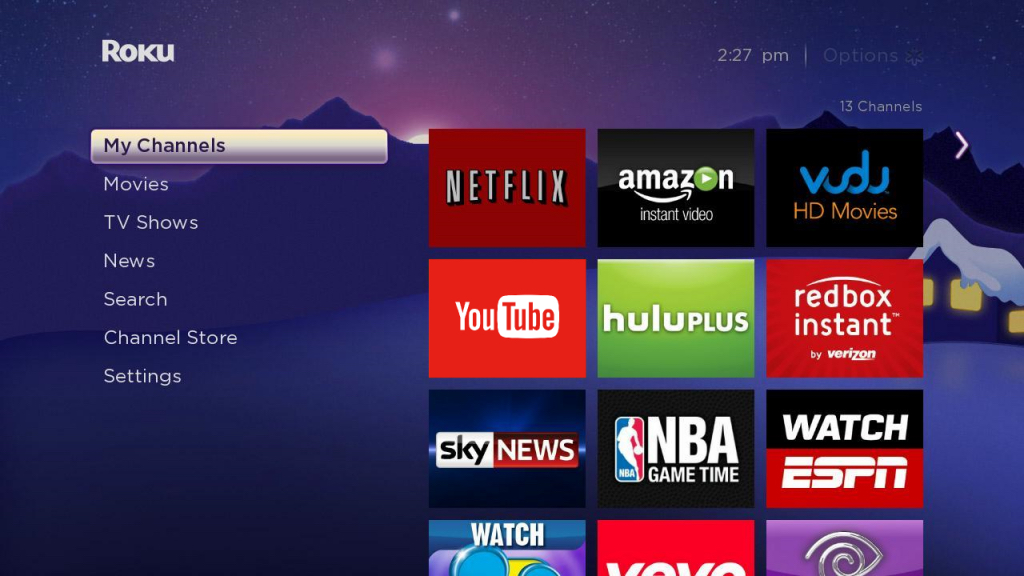YouTube TV Gets Dropped From Roku Channel Store
Existing customers maintain access to vMVPD

The smarter way to stay on top of broadcasting and cable industry. Sign up below
You are now subscribed
Your newsletter sign-up was successful
Roku told customers this morning that it is no longer carrying the YouTube TV app in its channel store.
Current subscribers to YouTube TV who have the app installed will still be able to access the programming they get through the virtual MVPD. Roku users will also continue to have access to the free YouTube app.
But customers who want to start subscribing to YouTube TV will not be able to get the app for Roku devices.
Also Read: There’s More to Roku vs. Google Than the Usual Dollars and Sense
The two sides pointed fingers about how the dispute evolved, with Roku firing first, and YouTube TV calling Roku's assertions about data and search issues "baseless and false."
"We are disappointed that Google has allowed our agreement for the distribution of YouTube TV to expire. Roku has not asked for one dollar of additional financial consideration from Google to renew YouTube TV,” Roku said in a statement.
The dispute between Roku and Google bubbled up earlier this week when Roku altered subscribers that a blackout of YouTube TV could occur.
The smarter way to stay on top of broadcasting and cable industry. Sign up below
“Because our contract has expired, we have removed YouTube TV from our channel store," Roku said. "To continue to provide our users with a great streaming experience, we are taking the extra step to continue to offer existing subscribers access to YouTube TV on the Roku platform unless Google takes actions that require the full removal of the channel. Because of Google's conduct, new subscriptions will not be available going forward until an agreement is reached.”
Roku said the dispute is not about money but starts with a demand that Roku manipulate search results to favor YouTube TV. Google also wants access to data otherwise not available.
It also said it is asking Google not to leverage its YouTube monopoly to force Roku to accept hardware requirements that would increase consumer costs or to act in a discriminatory and ant-competitive manner against Roku.
YouTube TV has denied the dispute had anything to do with search.
"We’ve been working with Roku to renew our deal to distribute YouTube TV on their devices. Despite our best efforts to come to an agreement in the best interests of our mutual users, Roku terminated our deal in bad faith amidst our negotiation. Unfortunately, Roku has often engaged in this tactic with other streaming providers," YouTube TV told its subscribers.
"The most important thing for us is to make sure you are taken care of, and that the experience of our shared users is a good one. As we post this, existing users still have access to YouTube TV on Roku devices. We encourage Roku not to remove the YouTube TV app so that existing users can continue enjoying the service," YouTube TV said.
YouTube TV laid out its version of the negotiations. It said in its initial conversations with Roku, it sought to renew their agreement under existing terms.
However, Roku wanted to renegotiate a separate deal encompassing the YouTube main app, which does not expire until December, YouTube TV said.
"Our agreements with partners have technical requirements to ensure a high quality experience on YouTube. Roku requested exceptions that would break the YouTube experience and limit our ability to update YouTube in order to fix issues or add new features," YouTube said. "For example, by not supporting open-source video codecs, you wouldn’t be able to watch YouTube in 4K HDR or 8K even if you bought a Roku device that supports that resolution. "
YouTube TV said it can't give Roku special treatment, and added that it did not make requests to access user data or interfere with search results. "This claim is baseless and false," it said.
Jon has been business editor of Broadcasting+Cable since 2010. He focuses on revenue-generating activities, including advertising and distribution, as well as executive intrigue and merger and acquisition activity. Just about any story is fair game, if a dollar sign can make its way into the article. Before B+C, Jon covered the industry for TVWeek, Cable World, Electronic Media, Advertising Age and The New York Post. A native New Yorker, Jon is hiding in plain sight in the suburbs of Chicago.

